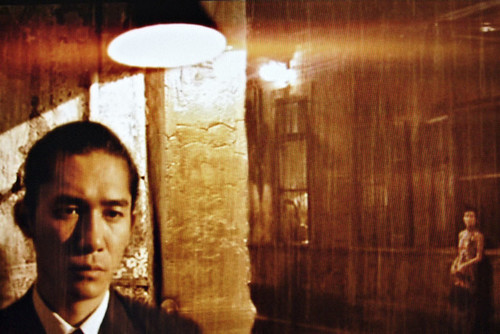After a month of deathlike silence, the literary blog hop is BACK. Visit The Blue Bookcase if you want to participate. This week, a great prompt who will allow me to discuss the forceful use of sentimentality and romance in fiction as a symptom of bad storytelling.
Discuss your thoughts on sentimentality in literature. When is emotion in literature effective and when is it superfluous? Use examples.
Contrary to what my most faithful readers might thing, I'm not the one to shy away from a good romantic storyline. It's not my cup of tea, but I am human, you know? Witnessing love, impossible, difficult or simply blossom in between two human beings is touching. The problem I have with it, and why I bang on so many romance writers, is that there is an industry based around romance. It's like a rare bird, it's something you cannot turn into a product. If by any chance you do, it's going to lose it's wild and exotic nature. So you'll end up chasing another bird.
The two first guests of my "Ten Rules To Write Noir" A.N Smith and Keith Rawson have both declared that the first rule to write noir is not to write noir. Just write your story. If it happens to be noir, good for you (or not), if not, then you're just not that writer. It reflects exactly how I feel about the use of romance in literature. Or it's going to be there, or it won't. If you take one of the most famous love story of all time, Romeo & Juliet. It's the story of a city, torn by the war in between two of its most important families. The cutie-pie teenager romance is a product of that war. You have to understand the complexity of the conflict to appreciate the strength of the young lovers bond (and appreciate the the destructive character of their identity confusion). It's a good love story, because it's engineered from an underlying storyline.
Building a romance from a blank page doesn't work (not for me anyway). It's going to be heavy with forceful stares, mushy feelings of alienation and divine intervention (I.E "my life was shit and then *thunder roars* (s)he appeared out of the crowd and changed everything). You gotta admit, it reflects a somewhat pathological desire to feel special. That's what sentimental/romantic storylines are most of the time. Desire. Desire to transcend reality, desire to feel unique, desire to feel immortal. It stops at the first sings of blossoming, or even worse, it goes spiraling down in unnecessary (and equally pathological) sadness and alienation. What Twilight is, is the reflection of girls' desire to have a unique and devouring passion. It's not love, it's desire to be unique.
Another example. In Silk, by Alessandro Baricco, Hervé Joncour is a silkworm buyer. He has a HUGE problem on his hand, caused by his frequent (and LONG AS HELL) travels to Japan. He loves his wife Helen and this unnamed concubine of his client. He cannot exactly talk with her, since he doesn't talk Japanese, so he has to show her using signs, how beautiful and special he thinks she is. I'm not going to spoil anything here because it's kind of the bulk of this novella, but it's quite something. But Hervé has to juggle with the situation and with his wife back home, who he loves, but only differently. See, Hervé has known a new sort of love during his travels, but kept managing his union through the storm, because he is a good guy at heart and makes the difference in between the impossible and reality. It's a great, short read. And please. PLEASE PLEASE, PRETTY PLEASE, DON'T WATCH THE HORRIBLE MOVIE ADAPTATION. Francois Girard is a pompous fool with a director chair who denatured a beautiful love story.
Great love stories are born from a great story, but not engineered from a blank page.

